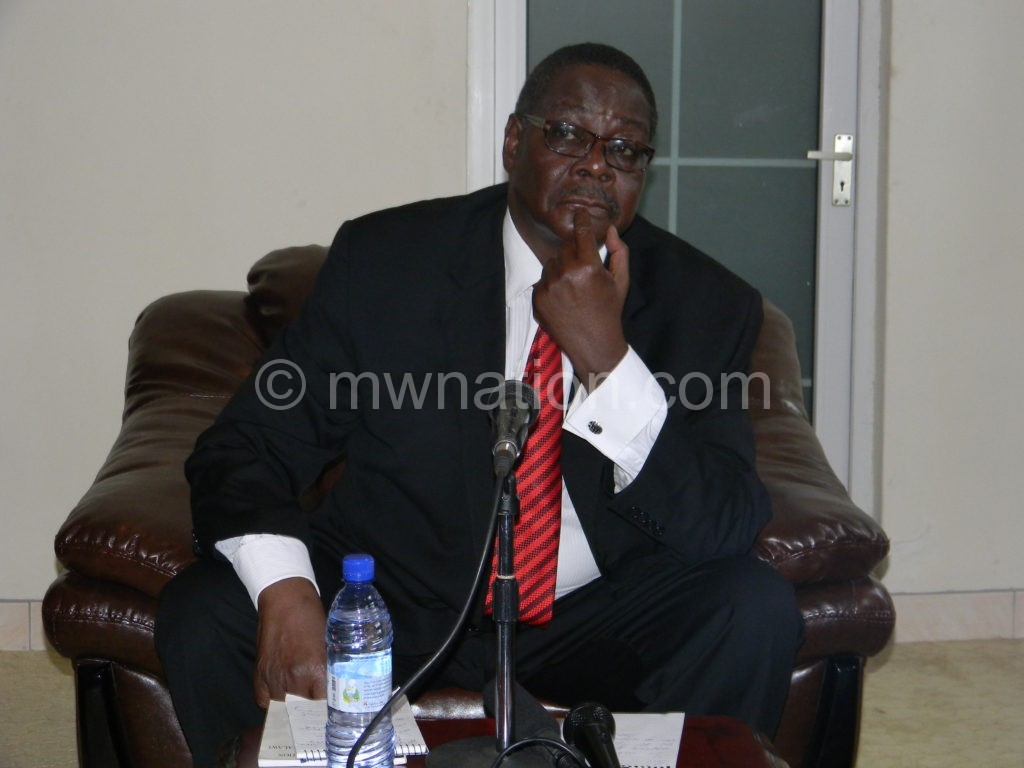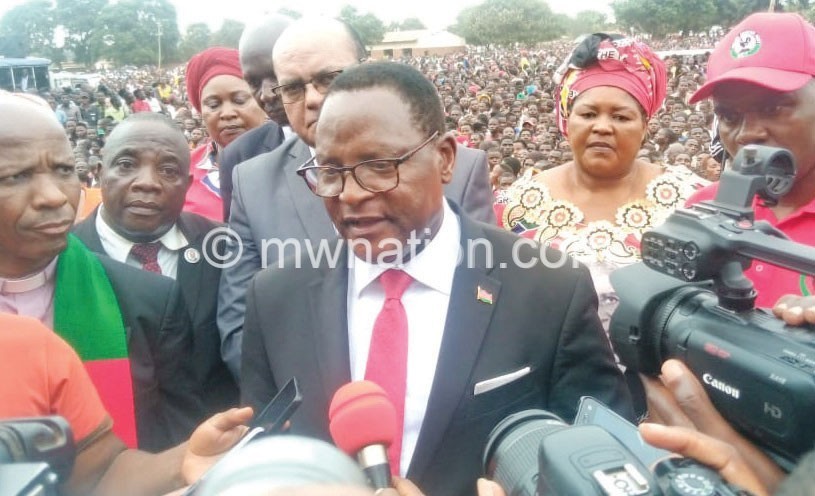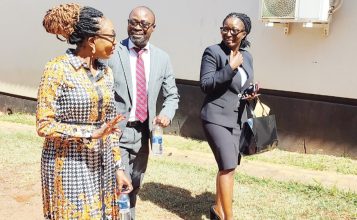APM, MEC fall again
President Peter Mutharika and Malawi Electoral Commission (MEC) suffered yet another blow on Wednesday after the Constitutional Court threw out their respective applications to suspend the February 3 nullification of the May 21 2019 presidential election.
Mutharika and MEC, who were first and second respondents in that order in the presidential election nullification petition, wanted the five-judge panel of the High Court of Malawi sitting as the Constitutional Court to postpone enforcement of the ruling on the basis that, among others, its implementation would have constitutional and financial challenges should their appeal succeed in the Malawi Supreme Court of Appeal.

In dismissing the application, the court also clarified on its order regarding the involvement of the Attorney General (AG) in the case, saying the office was barred by the judgement from participating in any future proceedings of the current case, including the forthcoming appeal case as well as similar cases in the future.
On Mutharika’s concerns over costs he would suffer if the fresh election is held and the Supreme Court later rule that the annulled elections were conducted in line with the laws, the court dismissed the argument, saying “the view of the court is that democracy is an inherently costly exercise” and that expenses should not come in between pursuit of “legitimately elected leaders” and the citizens’ rights to have genuinely elected leaders governing them.
Reading the judgement, Judge Dingiswayo Madise said: “The court will not stop the pursuit of constitutionally sound elections on account of expense of those voluntarily seeking public office.”
Mutharika’s other argument for suspension of enforcement of the ruling was that in the event of fresh elections producing a different winner than him who is sworn in and then later the appeal rules in his favour, the development could lead to social and administrative chaos as the new President would have appointed a Cabinet and made other critical decisions. He said this could be avoided by putting aside the Constitutional Court ruling.

But the court again dismissed his assumption, arguing that it was a “highly unlikely event” that the fresh election would be held before the Supreme Court makes its ruling on the appeal.
Madise, reading the judgement on behalf of other judges on the panel Healey Potani, Mike Tembo, Ivy Kamanga and Redson Kapindu, said appeals are generally delayed by preparation of submissions. He observed that in the current case the court record is almost ready; hence, will not delay the appeal.
The court dismissed as premised on “very shaky ground” Mutharika’s argument that Parliament may have made some legislative changes that could be difficult to reverse by the time the appeal succeeds and an election held as prescribed by the court.
Here, Madise reminded the President: “Parliament has mandate to make laws in conformity to the Constitution anyway.”
Said the judge: “The first respondent’s [Mutharika] application is refused in its entirety.”
MEC filed three grounds, some similar to Mutharika’s. The electoral body’s case, like Mutharika’s, was also dismissed in its entirety.
On cost implications of fresh elections, the court reminded MEC that any elections will be paid for by taxpayers not the commission; hence, dismissed the argument as flawed.
On the need for more time to conduct elections, the court said MEC’s proposal for elections to be held in October “smacks of luxury of time which should not be the case in the circumstances”.
The court prescribed areas where MEC could cut duration of activities from its proposed new elections calendar such as six months for civic education, including meetings with chiefs, arguing the rest of the calendar too could be compressed.
MEC had also argued that the current Parliament’s inquiry on conduct of staff as a ground for the stay order, saying it could be an injustice to MEC commissioners and staff if the appeal succeeded, but the court said Parliament’s Public Appointments Committee already has oversight function over MEC; hence, the court “believes the committee will perform its independent function in the matter.”
Reacting to the ruling, one of Mutharika’s lawyers, Charles Mhango, a former AG, asked for more time to consult his client before commenting on the next step, but said seeking another stay order was an option.
Legal teams for Vice-President Saulos Chilima (the first petitioner) and Malawi Congress Party (MCP) president Lazarus Chakwera (the second petitioner) hailed the ruling as necessary for the protection of the landmark ruling delivered on February 3rd.
One of Chakwera’s lawyers, Pempho Likongwe, said the ruling was good news for the legal team and will pave the way for preparations for the impending appeal.
A rare victory for MEC, though, was the court’s decision to dismiss the Chilima’s application to strike out the stay order and appeal by MEC on grounds that the lawyer who signed MEC chairperson Jane Ansah’s sworn statement had no valid legal licence.
The court condemned the move, but advised MEC to rectify the scenario by re-submitting the document after using another lawyer. Earlier, lawyers Khumbo Soko for Chilima and Modecai Msisha for Chakwera had asked the court to dismiss the application while Mhango and AG Kalekeni Kaphale argued for the granting of the stay.





